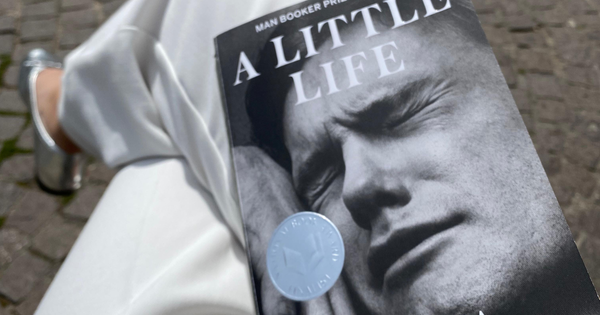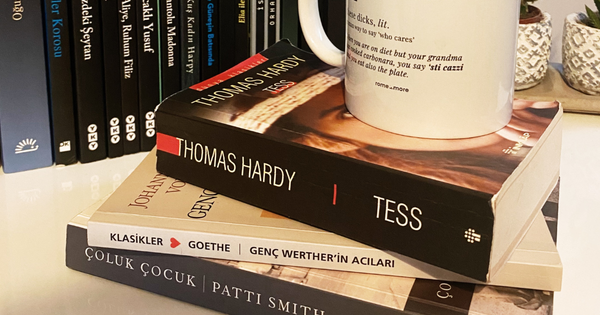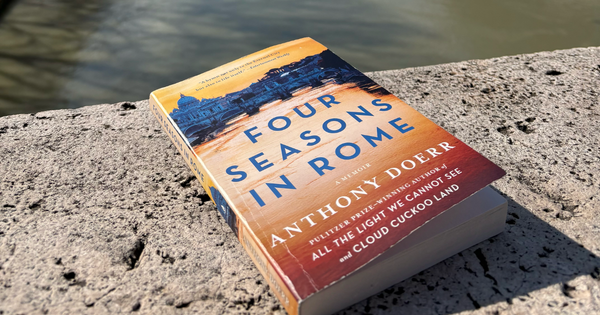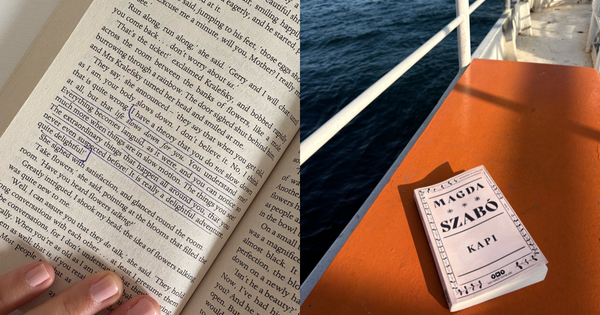A Brief Review of “The Dry Heart” by Natalia Ginzburg
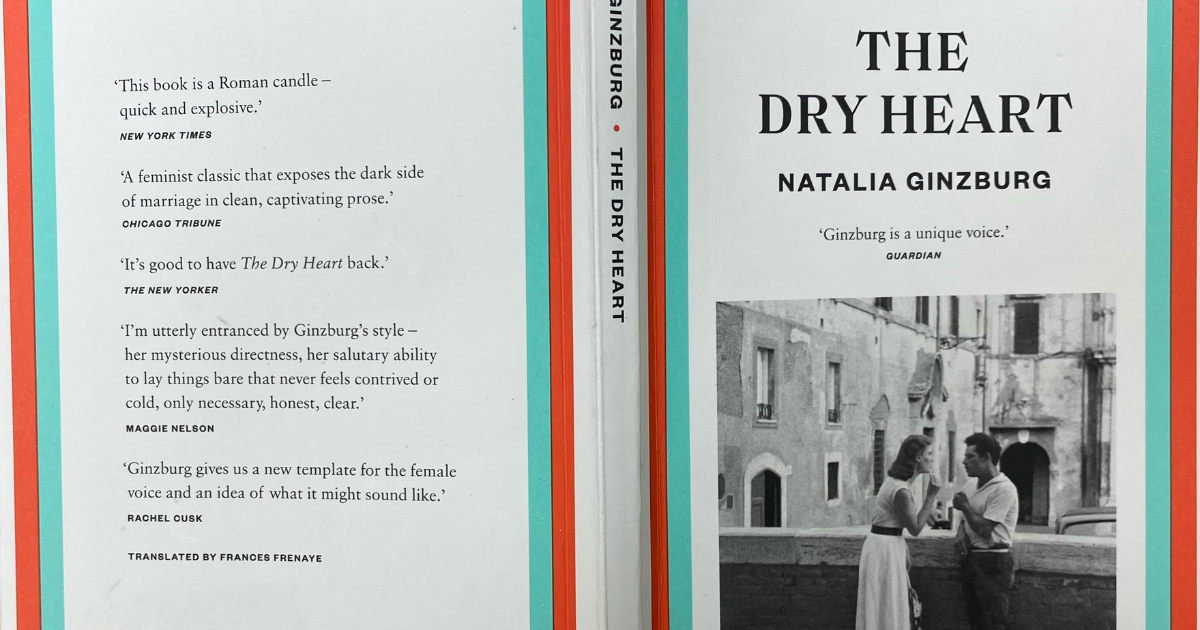
When simplicity speaks louder than drama.
“I took the revolver out of his desk drawer and shot him between the eyes.” That’s not a spoiler — it’s written right on the cover. But what isn’t revealed on the cover is that this book contains one of the cleanest, most impactful pieces of prose I’ve ever encountered and a story that moved me profoundly.
Natalia Ginzburg’s The Dry Heart, a masterpiece I stumbled upon randomly — but seriously in the most random way possible — in my favorite bookstore in Rome, is a revelation. I’m in awe of her ability to distill emotions, often labeled as complex, into their simplest, rawest forms. Through this story, it becomes clear that relationships, while fraught with emotions and misunderstandings, ultimately hinge on simple truths: care, love, or the lack of them. Yet when I say it’s simple, I don’t mean it oversimplifies. Instead, it pierces through to the very core, laying bare the essence of human connections and their unraveling.
The unnamed protagonist finds herself trapped in a loveless marriage. Alberto, her husband, is the embodiment of what is fundamentally flawed in men like him — self-serving, manipulative, and emotionally distant. Despite claiming otherwise, he marries her not out of love but to use her as a bandage or perhaps as a weapon of revenge against his lover, a married woman with a child.
What strikes me the most is that I now realize I wasted some of my youth in a relationship like this, with a man like him. For a while, I thought he loved me in his own unique way, but in reality, he just used me as a bandage. Like the nameless protagonist of this story, I had never truly felt loved before him. Now, four years after this toxic relationship, I can say with certainty that he never loved me either.
And God, on page 65… the confrontation between Alberto and the protagonist made me relive all the moments I had with my ex. The same script, literally. The way they all believe they’re better off alone, the way they keep insisting they care for their partner yet show no care at all. If you truly care for someone, you don’t lie, you don’t deceive, and you certainly don’t cheat perpetually.
Page 67: he even confessed that he wanted to have that child solely to use it as another weapon against his “true love.” In my case, thank God I eliminated that possibility before it could lead to any catastrophic consequences. Still, it was utterly shocking to see the same patterns unfold in Ginzburg’s words, as if they had been plucked from my own life.
As you turn the pages, you reach the part where she contemplates confronting the other woman. And God, I’m so jealous of her for that. I never had the chance to face or even see the woman my ex cheated on me with, repeatedly, for so long.
You know who I’m jealous of? The author. I don’t know whether it’s fortunate or unfortunate, but I do have stories in my own life that might have earned me a Nobel Prize — if only I had a fraction of Natalia Ginzburg’s talent. Her voice, her writing — it’s so unique, so direct, honest, and clear. I’m in absolute awe of her skills. Maybe that’s why this story resonates so deeply with me; the way she presents it strikes directly at my heart.
I’m sorry, but — actually, no, I’m not sorry — I can’t find anything to justify Alberto and Giovanna. I have never understood people like them. She can never get enough of men’s attention, and he is just pathetic in this bizarre, destructive relationship they share. On his nonsensical journey — he dares to call it love, but I can’t — he ruins a life, or rather two lives. Why? How can someone be so reckless, so careless, as to willingly break another person’s heart?
As for Giovanna, she’s the epitome of an attention-seeking, self-serving individual. She lacks any moral standards, betraying the people in her life and enabling others to betray their partners as well. I’m not prudish — far from it — but there’s one principle I hold sacred: never, ever cause another woman the kind of pain I wouldn’t want to experience myself. Also, the final confrontation between her and our protagonist after the death of her baby… The audacity. I am still speechless, and I do hate her.
There’s something else I’d like to highlight: the lack of any clear indication of time in this story. While it’s evident that it doesn’t take place in modern times — judging by the absence of modern technology and the nature of human interactions — the decision to leave the time period ambiguous allows readers to connect more universally. After all, infidelity is a timeless issue.
And then there’s the protagonist’s anonymity. By remaining nameless, she becomes a representation of all women, a symbol rather than an individual. This choice makes her story feel even more universal, as if it could belong to anyone, anywhere, transcending personal identity to speak to shared experiences.
The ending of relatively short books might not always satisfy, but this book is an exception. The conclusion is a testament to the author’s brilliance. By avoiding unnecessary dramatics, she lets the raw emotions and the slow unraveling of events — cumulatively building toward the finale, which is mentioned at the very beginning — take center stage.
While reading this book, a reader will enjoy the ride — no twists, no unexpected drama — just a raw, relatable journey. It’s a journey one might suffer through, and I personally experienced something similar. In doing so, it feels deeply impactful. A masterpiece.
Last but not least, big shoutout to Daunt Books for this gorgeous edition. I loved the feel of the pages, the cover, and the overall design. Really added to the whole reading experience.

